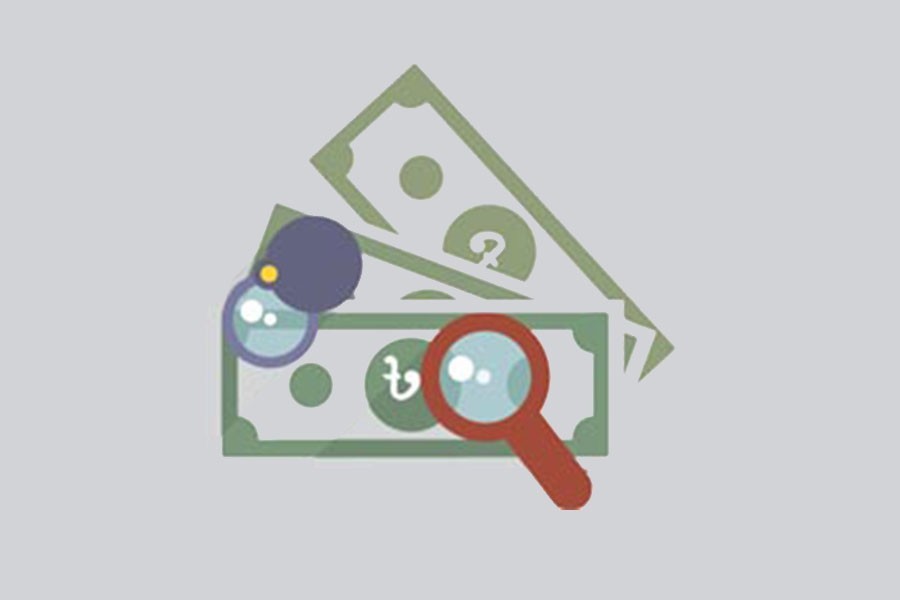Millions of rural people, who depend on small loans for financing family ventures and small businesses, cannot borrow money even to meet their emergency needs during the Covid-19 lockdown, said sector insiders.
The global pandemic that broke out in Bangladesh in early March has led to suspension of operations of the microfinance institutions (MFIs), which are now not in a position to pay salary of their staff members.
Throughout the years, microcredit graduated from the state of supporting basic needs to funding farm and non-farm activities and micro enterprises. It has a huge demand among mass people across the country, the birthplace of microfinance, they added.
Runa Begum, a 35-year-old entrepreneur in Char Fasson upazila under Bhola, is one of the microcredit borrowers, who could not meet the cost of livestock farming due to shortage of money.
"I often borrow money and pay back. I recently repaid Tk 60,000. I was waiting for receiving a loan amounting to Tk 80,000 from a local MFI. But the process of giving loan is suspended now when I need the money most," she told The Financial Express (FE).
There are almost 30 million microcredit recipients across the country, who were mostly unbanked earlier, according to the MFIs. Various organisations have reportedly distributed Tk 1.4 trillion as microcredit among 26.77 million recipients.
For small loan programmes, an amount of Tk 117 billion is injected into the rural economy every month. The contribution of microfinance to the country's gross domestic product (GDP) is estimated at 12.50 per cent.
The Covid-19 pandemic has exposed how much such loans have reshaped the rural economy, and how desperately the rural people need money, observed leaders of a number of non-governmental organisations (NGOs) that operate microcredit programmes.
The NGO leaders have called on the government to allow the MFIs, especially those operating in the grassroots level, to support people with health and financial services, by complying with 'social distancing' rules to prevent the spread of coronavirus outbreak.
They also seek suspension of the NGOs' loan installments, payable to Palli Karma-Sahayak Foundation (PKSF), a government-funded organisation that provides finance to the MFIs.
The MFIs are yet to be covered by emergency support packages, like the financial stimulus - announced by the Prime Minister for export industries, services and farm sectors.
Currently, small and medium-sized NGOs are spending their surplus fund with subsidy from PKSF on health, education, disaster management, refugee relief, agriculture, livestock, fisheries, care of elderly people and integrated rural development programmes, noted Rezaul Karim Chowdhury, executive director of COAST Trust, which is working under PKSF.
Both disbursement and recovery of loans remain suspended in all 64 districts. So, nearly 250,000 staffers, who are working in the sector, might be deprived of their salary in coming days, Mr Chowdhury pointed out.
He added that Bangladesh is the top country in South Asia in terms of financial inclusion, largely because of the MFIs' microcredit operations.
Some 1,500 organisations, including 220 affiliated with PKSF, are engaged in distribution of microcredit. However, a total of 758 MFIs (as of December 2019) have been licensed by the Microcredit Regulatory Authority (MRA), an oversight body formed in 2006.
The MRA is discussing with the higher authorities concerned and giving updates about the current situation as well as demands of the MFIs, MRA Executive Vice Chairman Amalendu Mukherjee told the FE.
He mentioned that the MRA has asked the MFIs not to consider a loan as bad loan, if a borrower is unable to repay it until June 2020.
Abdul Awal, Executive Director of Credit and Development Forum (CDF), a national association of MFIs, said almost 90 per cent of their organisations are small and medium. These will struggle to pay salary to their staff members, working under 22,000 branches of the MFIs and NGOs across the country.
CDF, on behalf of the MFIs, sent a letter to the Prime Minister's Office, seeking benefits from the stimulus packages, he added.
Dr Atiur Rahman, a development economist and former governor of the Bangladesh Bank, recognised the importance of microcredit operations, including welfare of the MFI employees, during the lockdown.
"The entire rural economy will face severe impact, if appropriate and innovative measures are not taken right now, as microcredit sector is closely related to agriculture, fisheries and livestock."
He also recommended that the MRA should sit with the central bank for making a linkage between small farmers/entrepreneurs and banks, so that they can get benefit of the bailout packages.
PKSF Deputy Managing Director Jashim Uddin said the foundation, through its partner organisations, is working to stand beside people and microcredit beneficiaries across the country.
"PKSF is offering help and support to people in this critical time, and it will focus on helping them to come out of the crisis and keep the rural economy afloat," he added.


